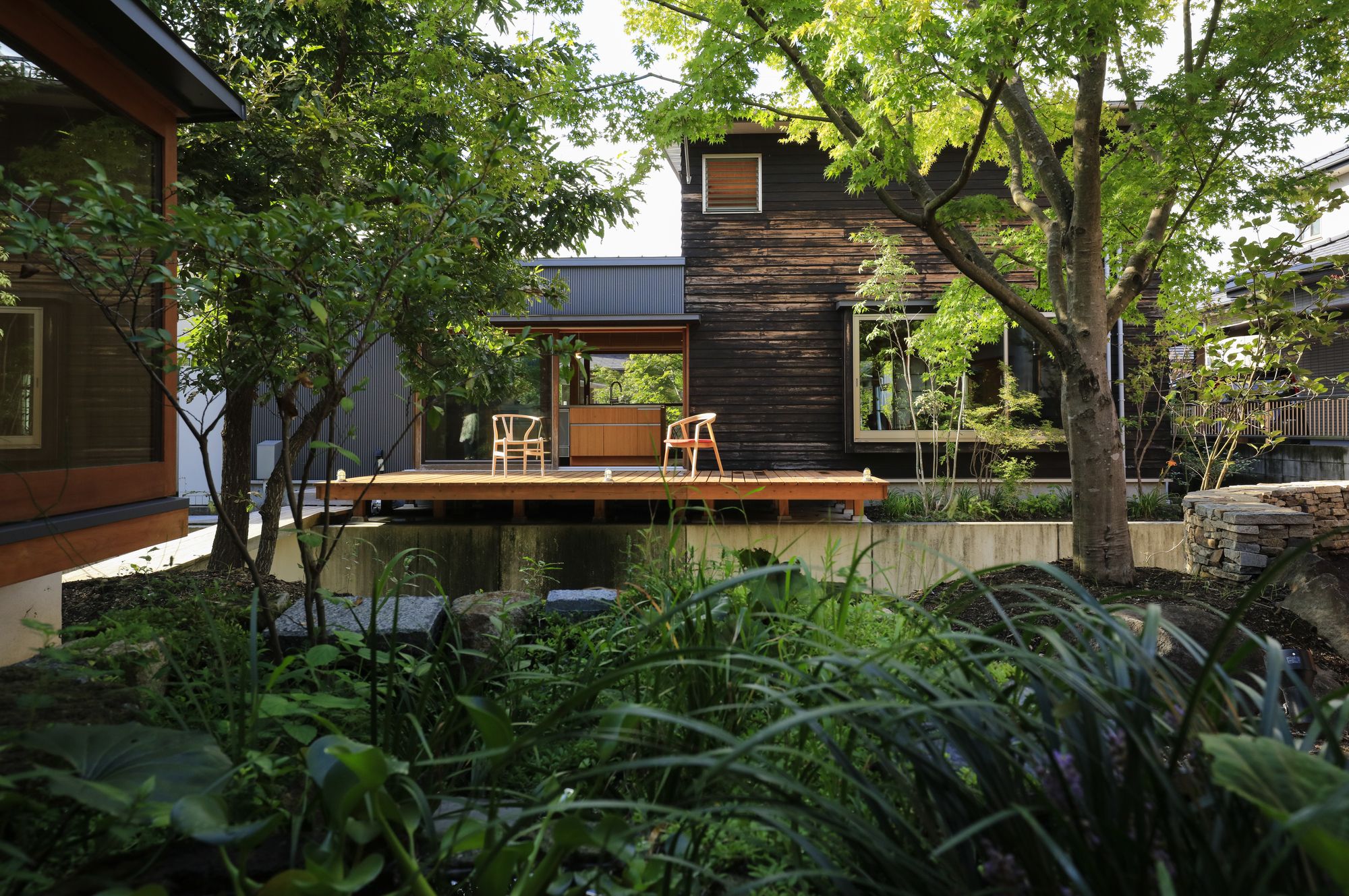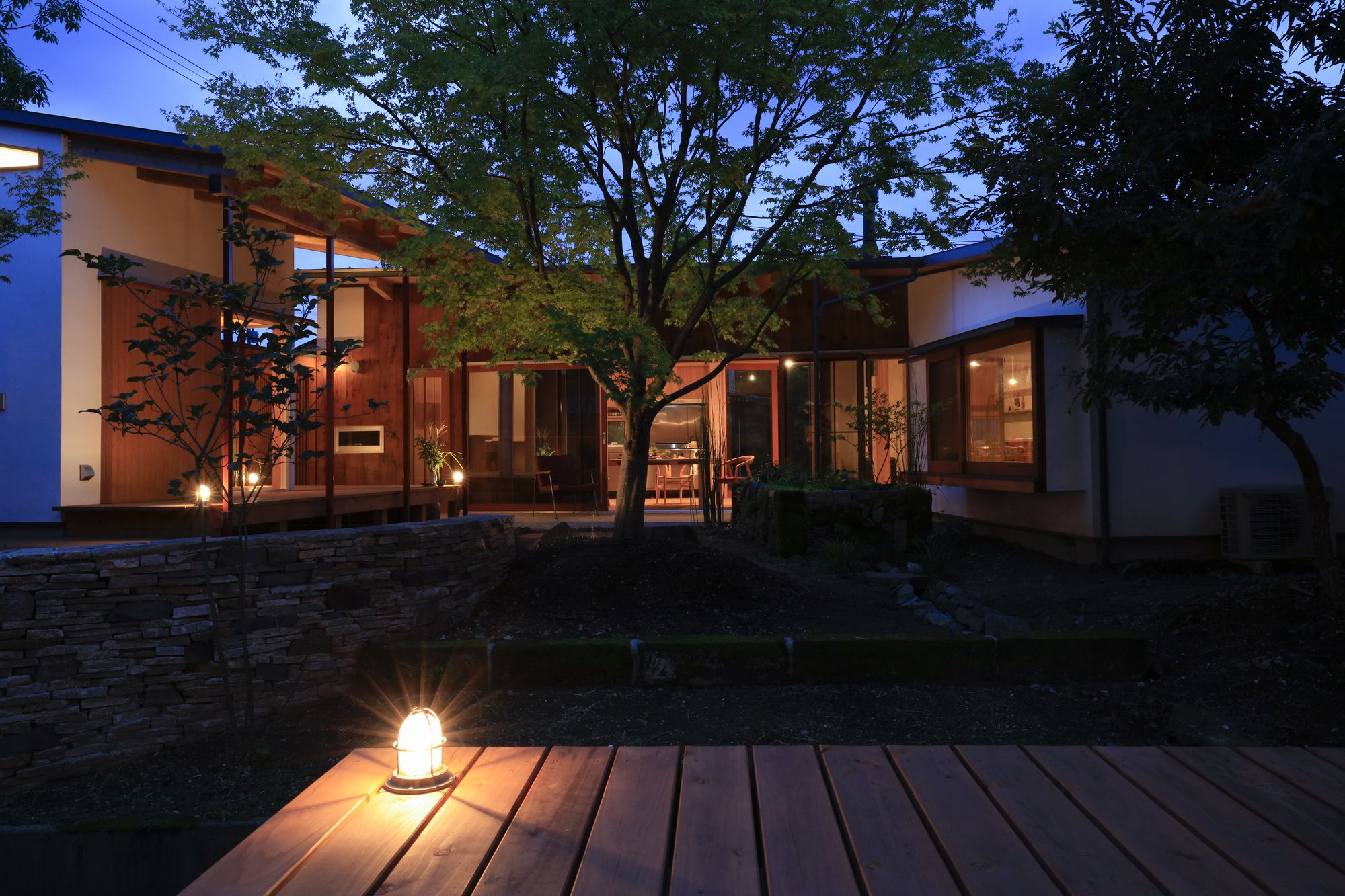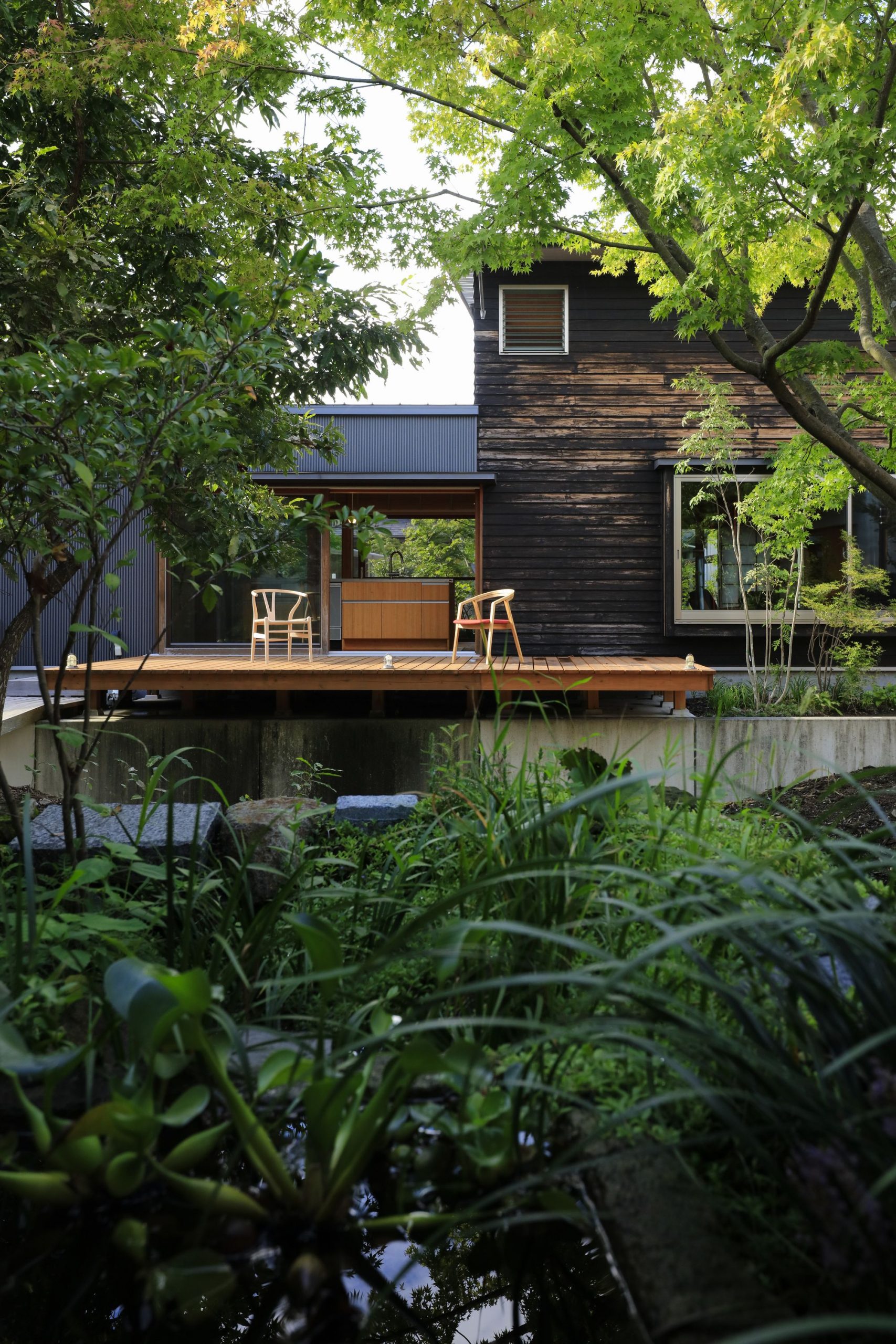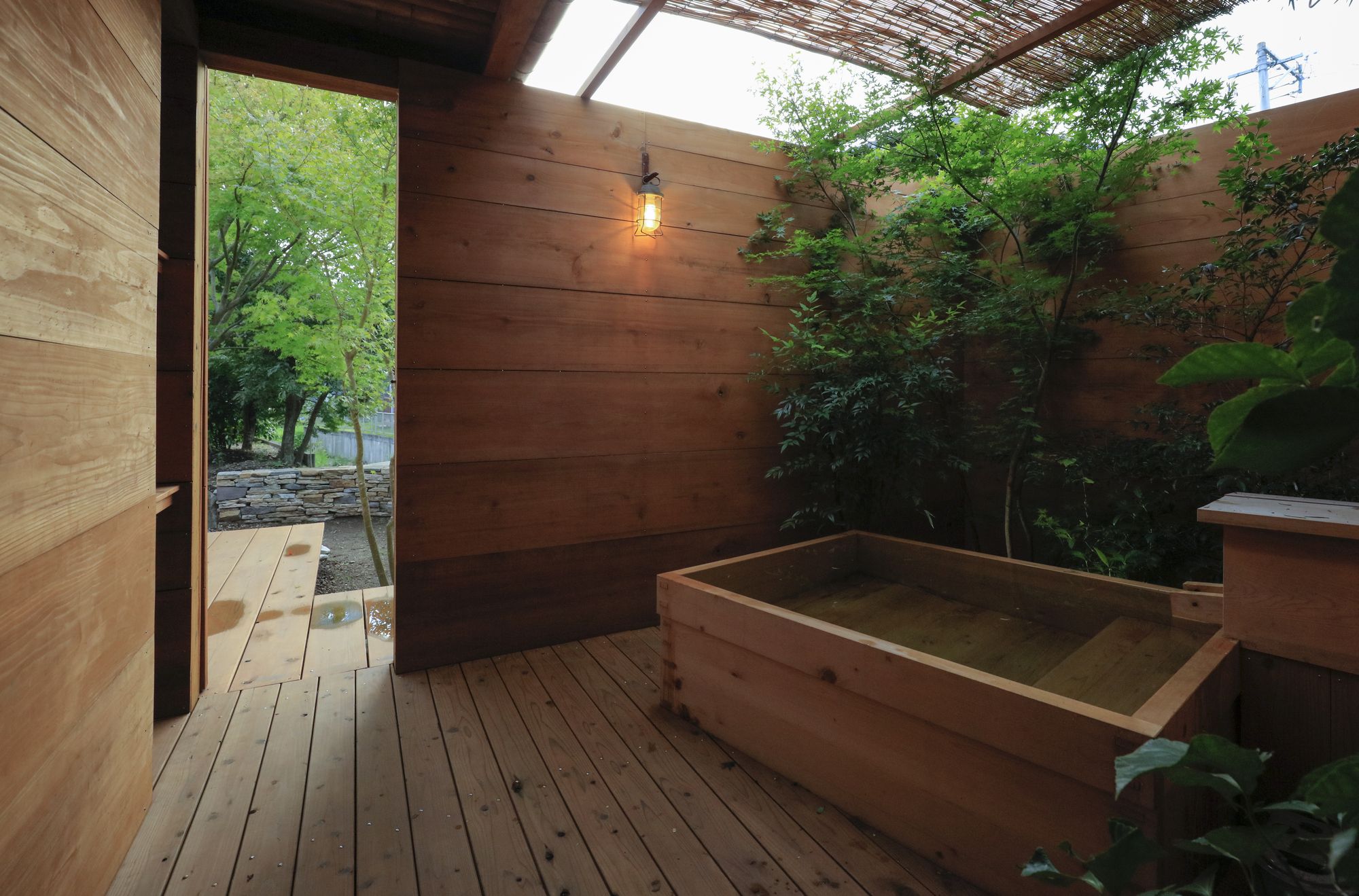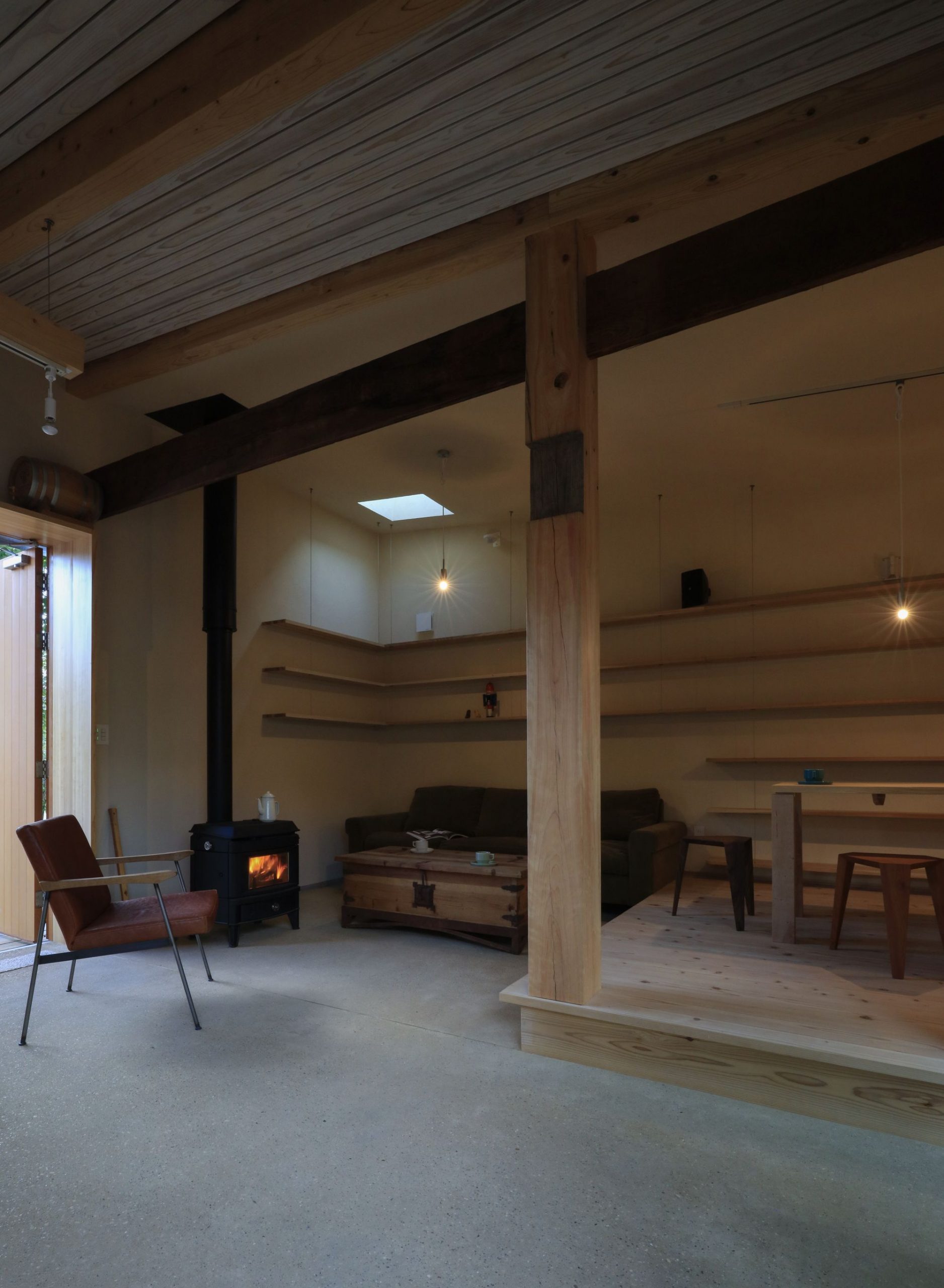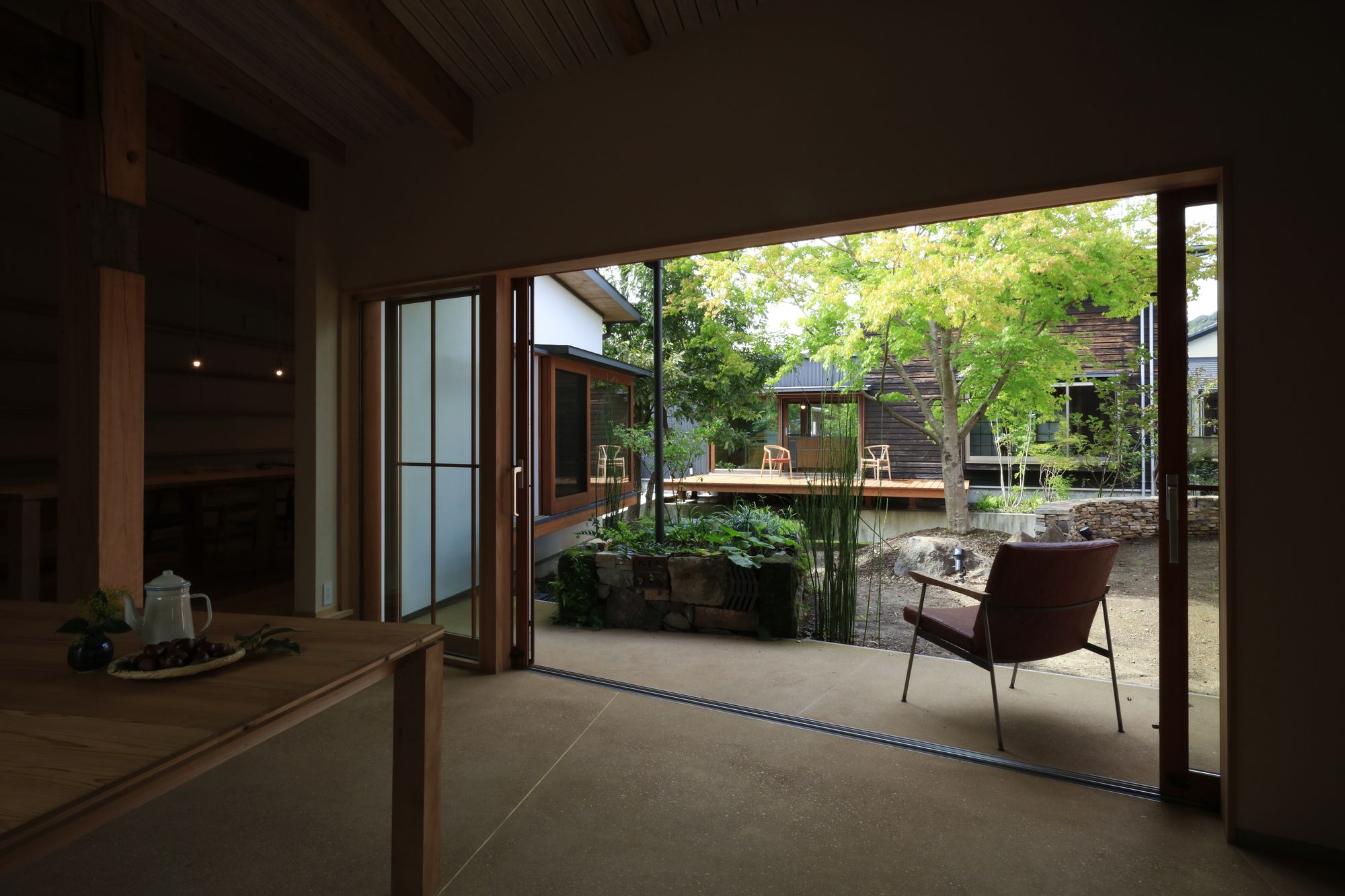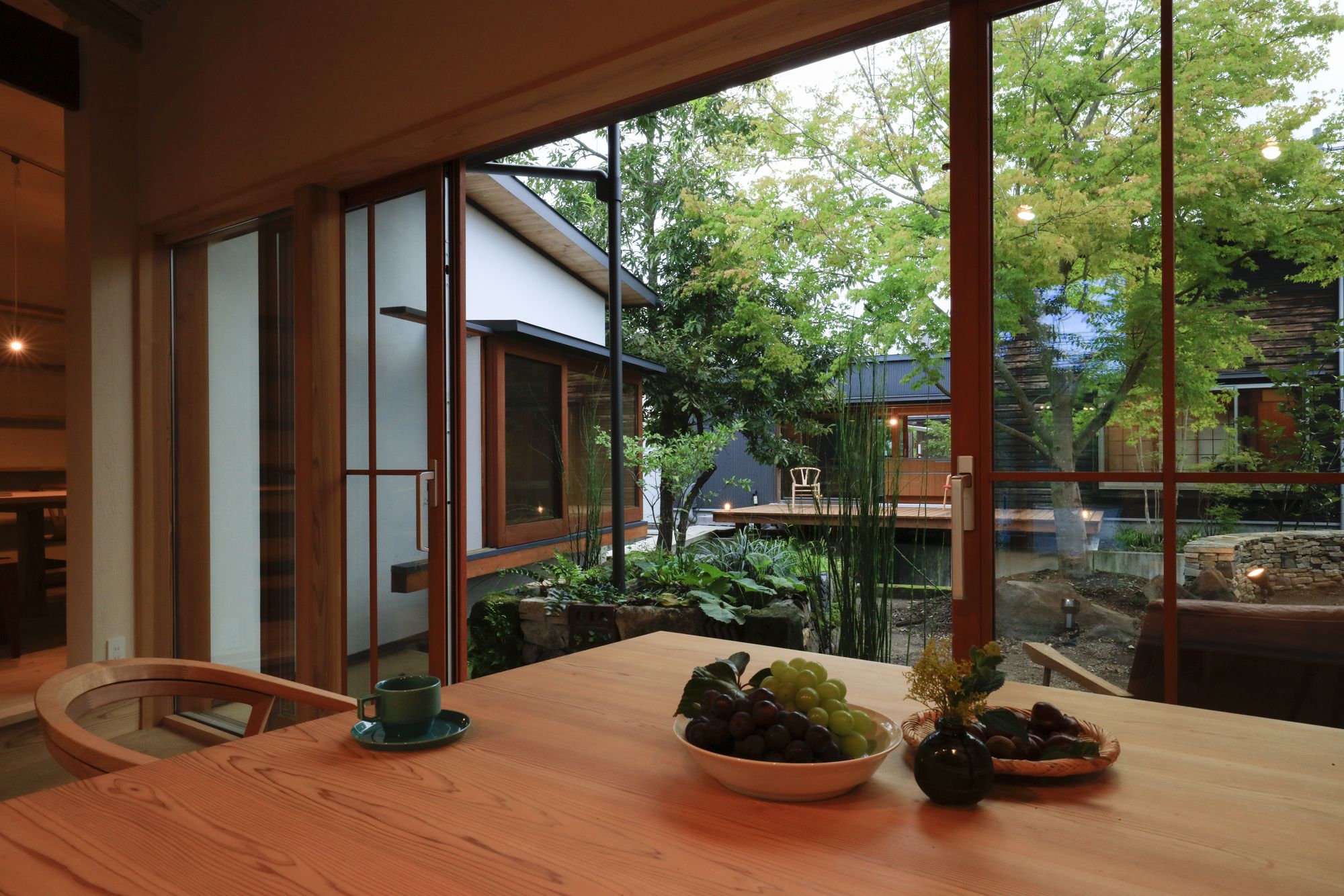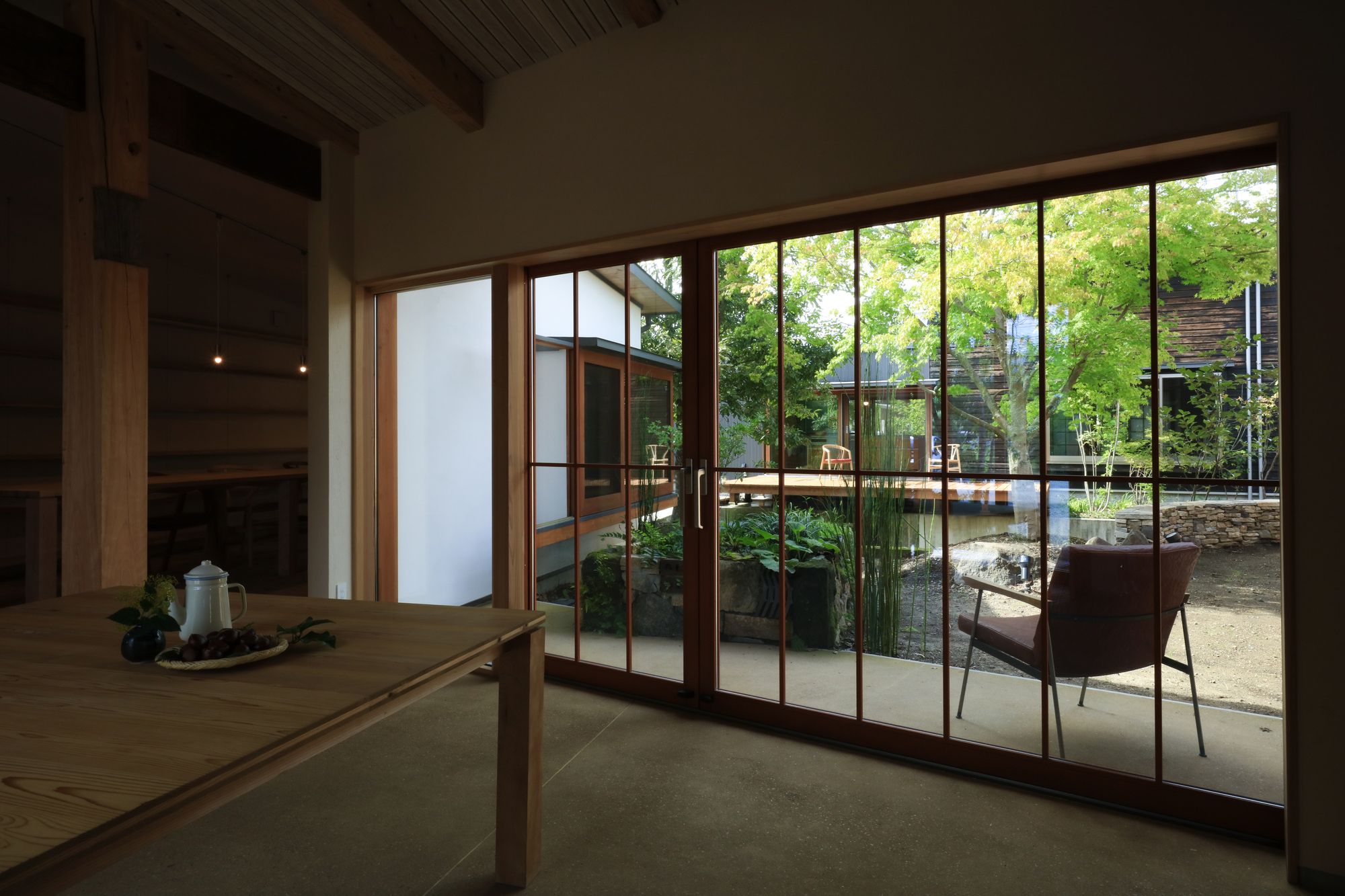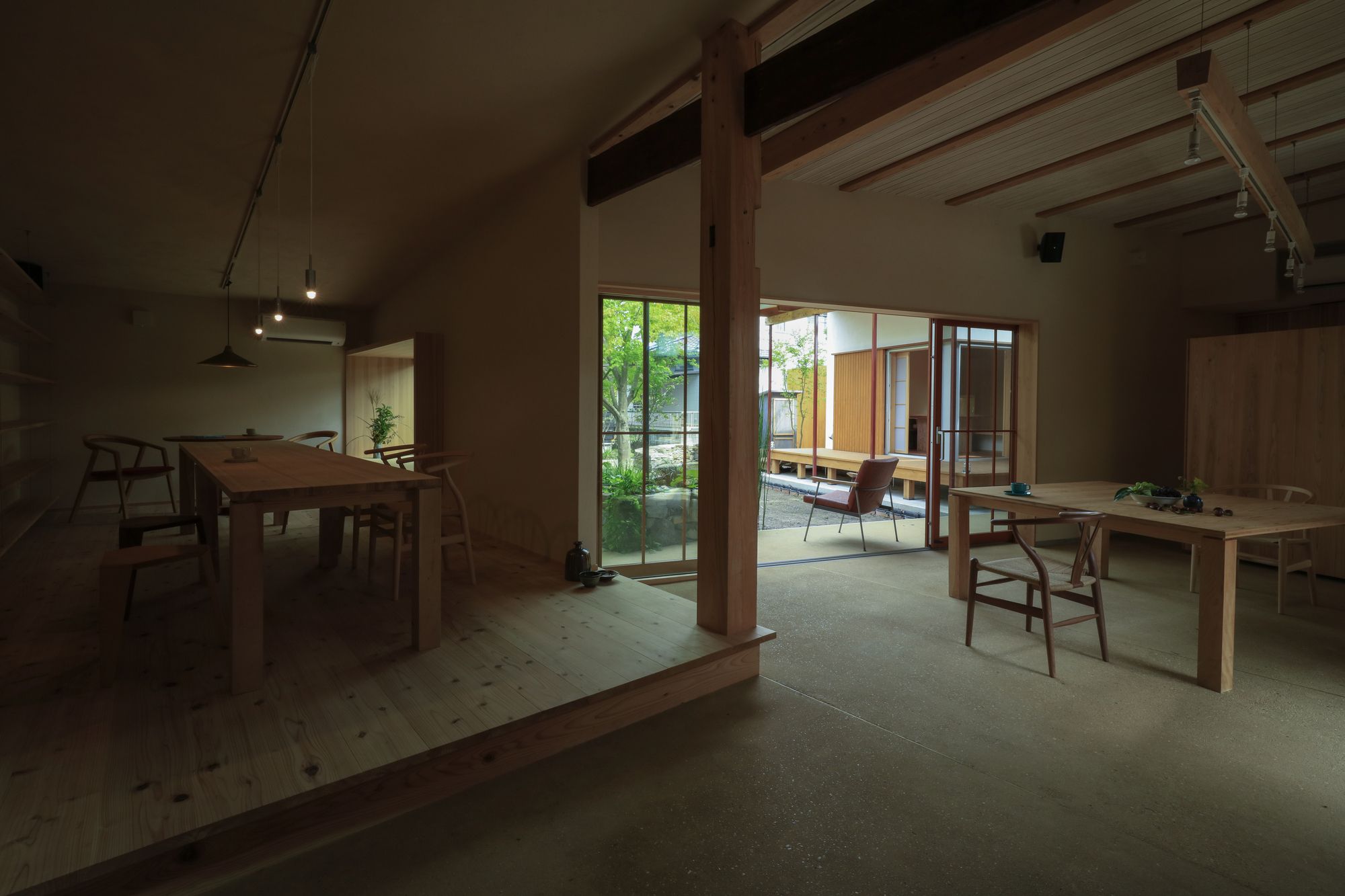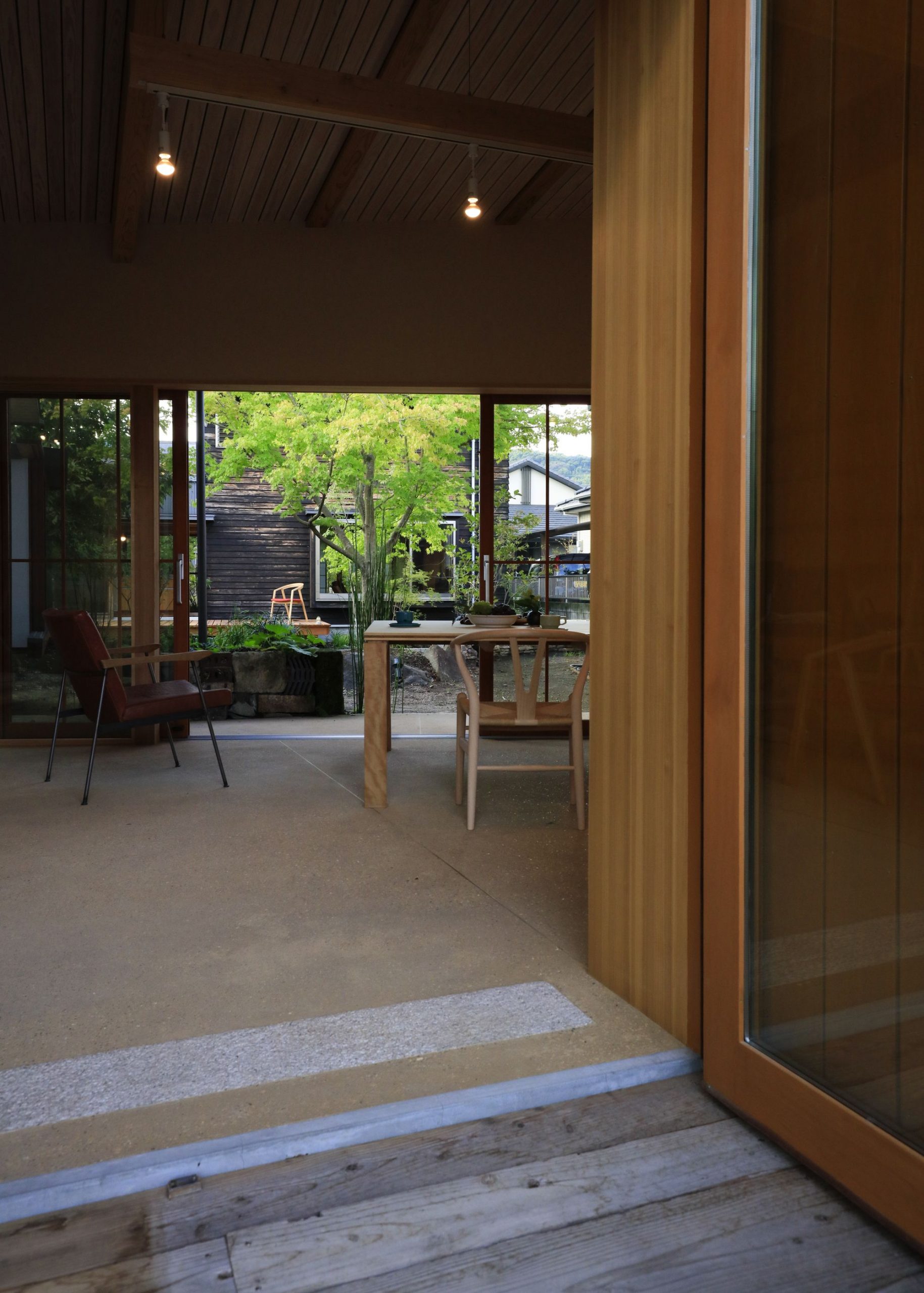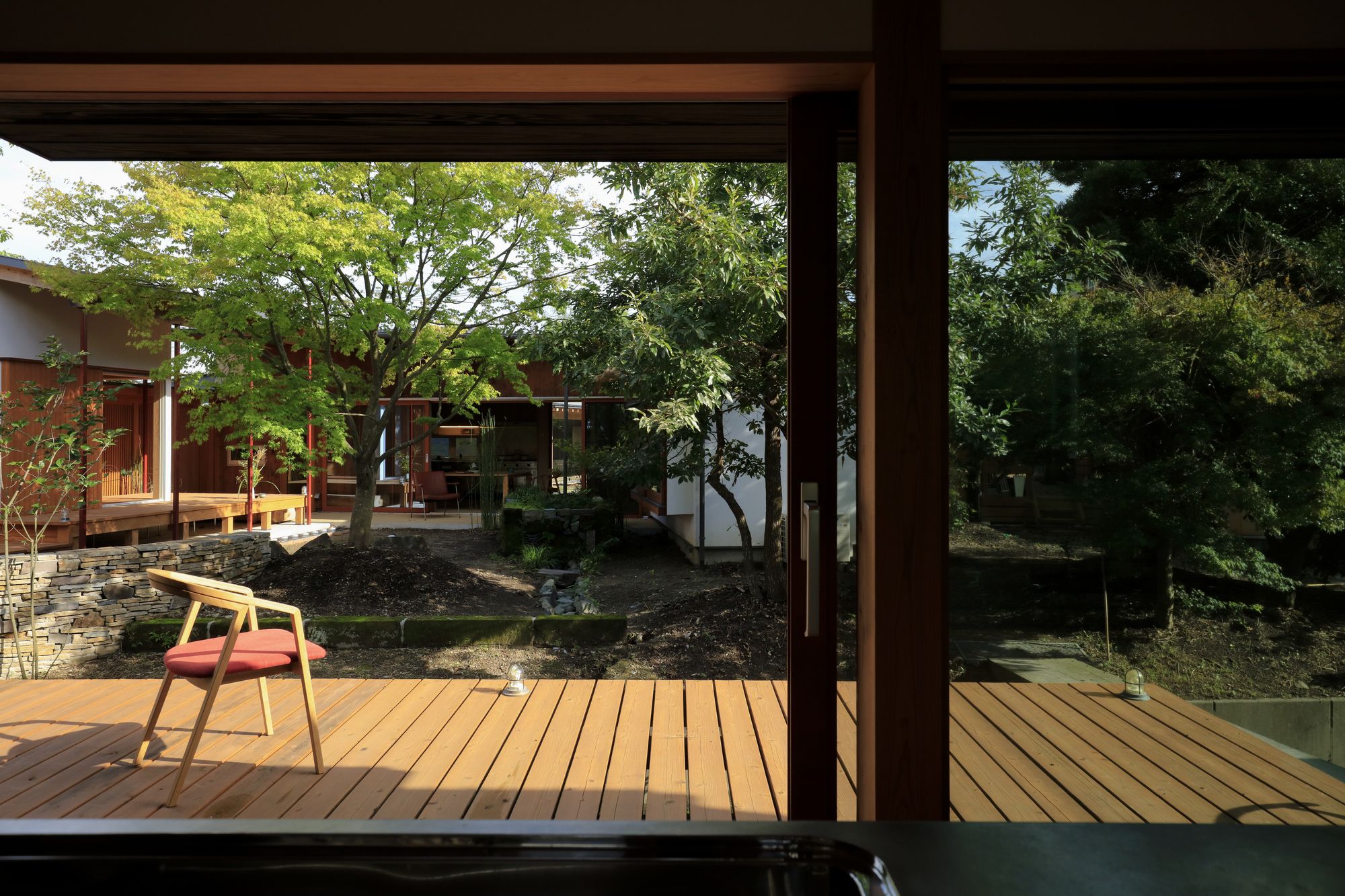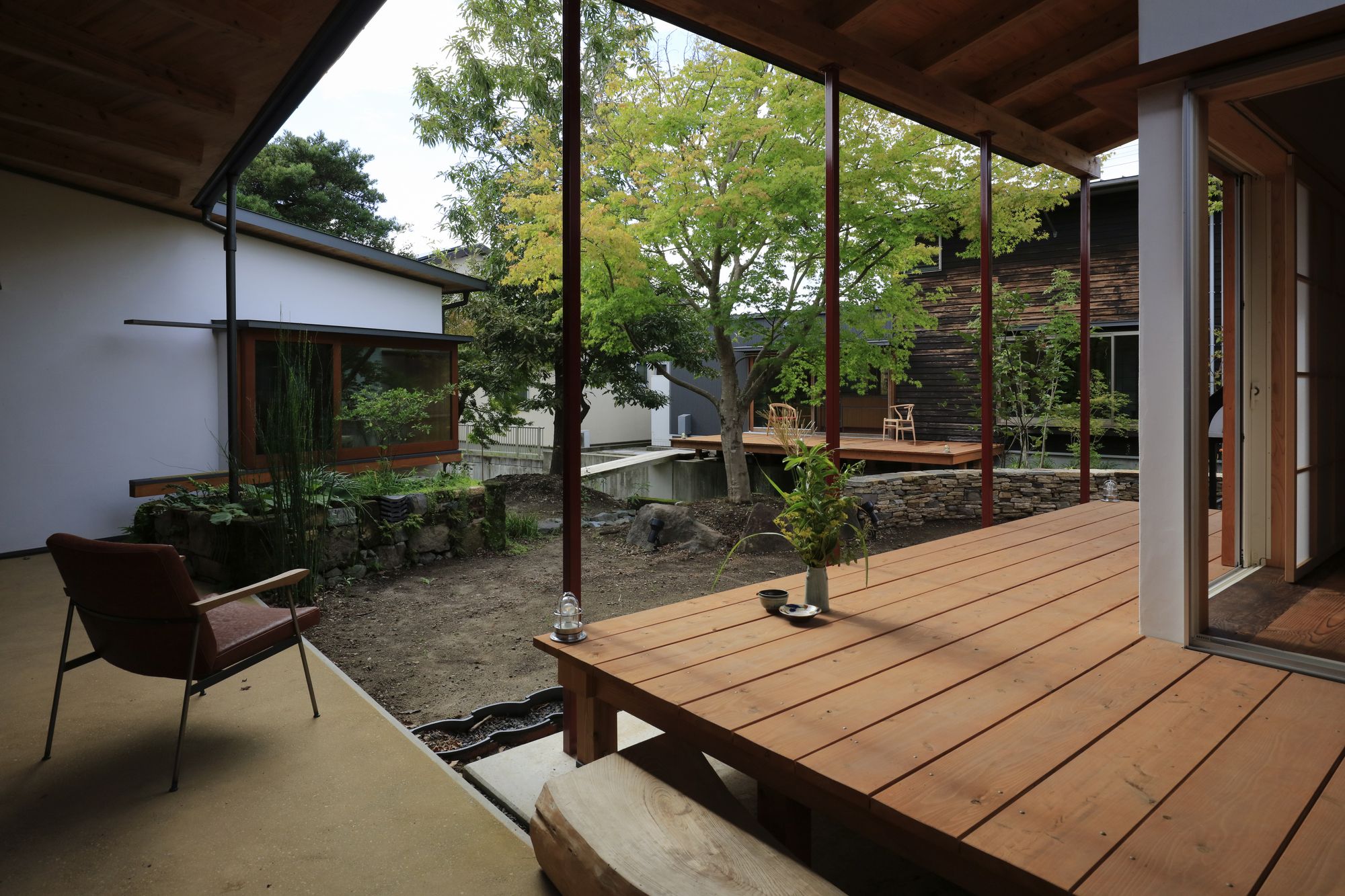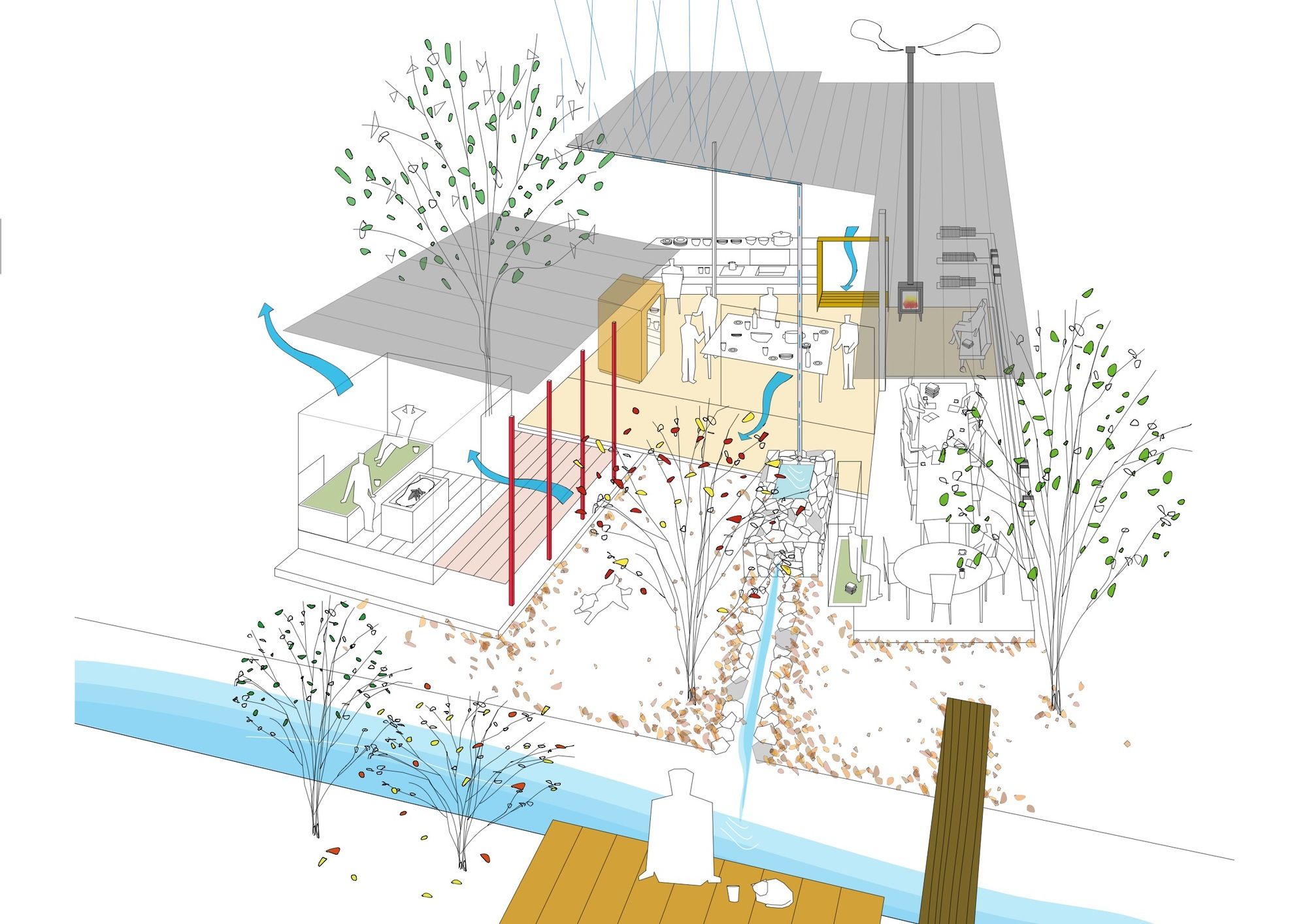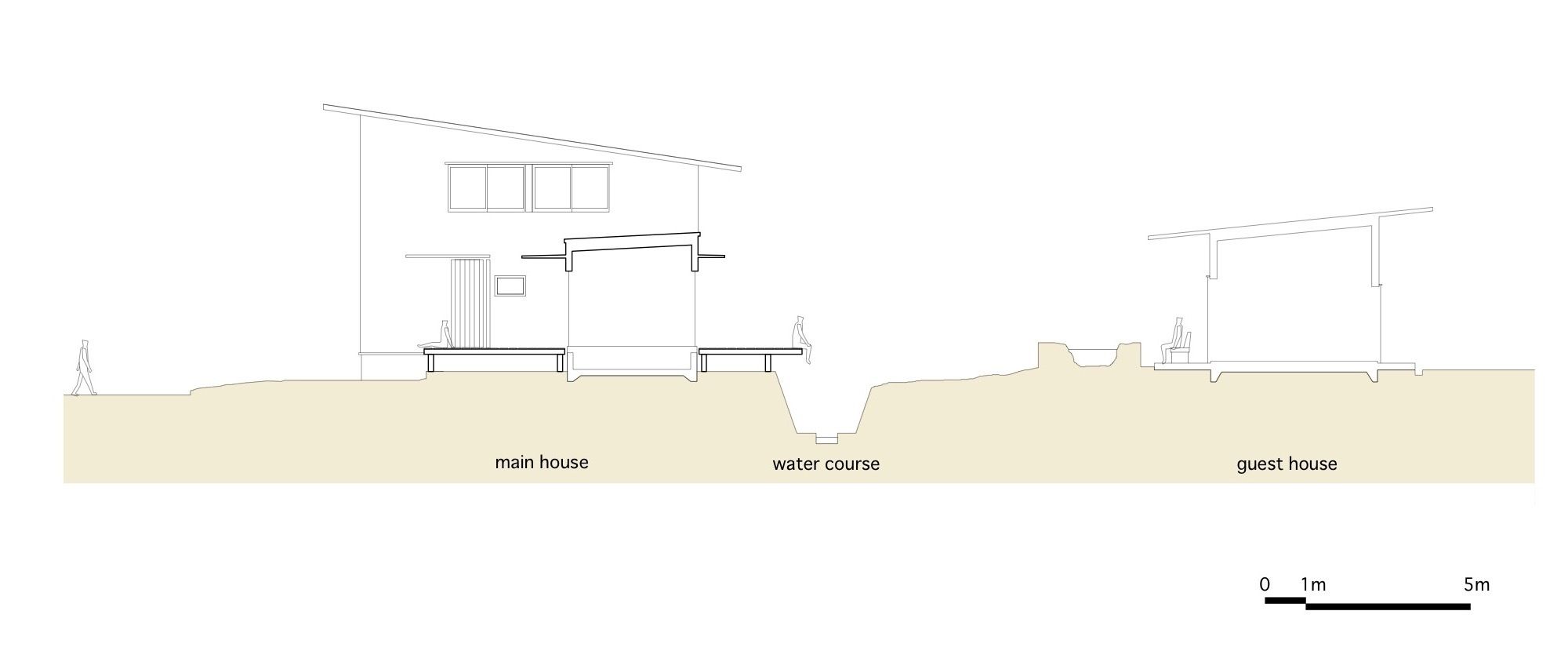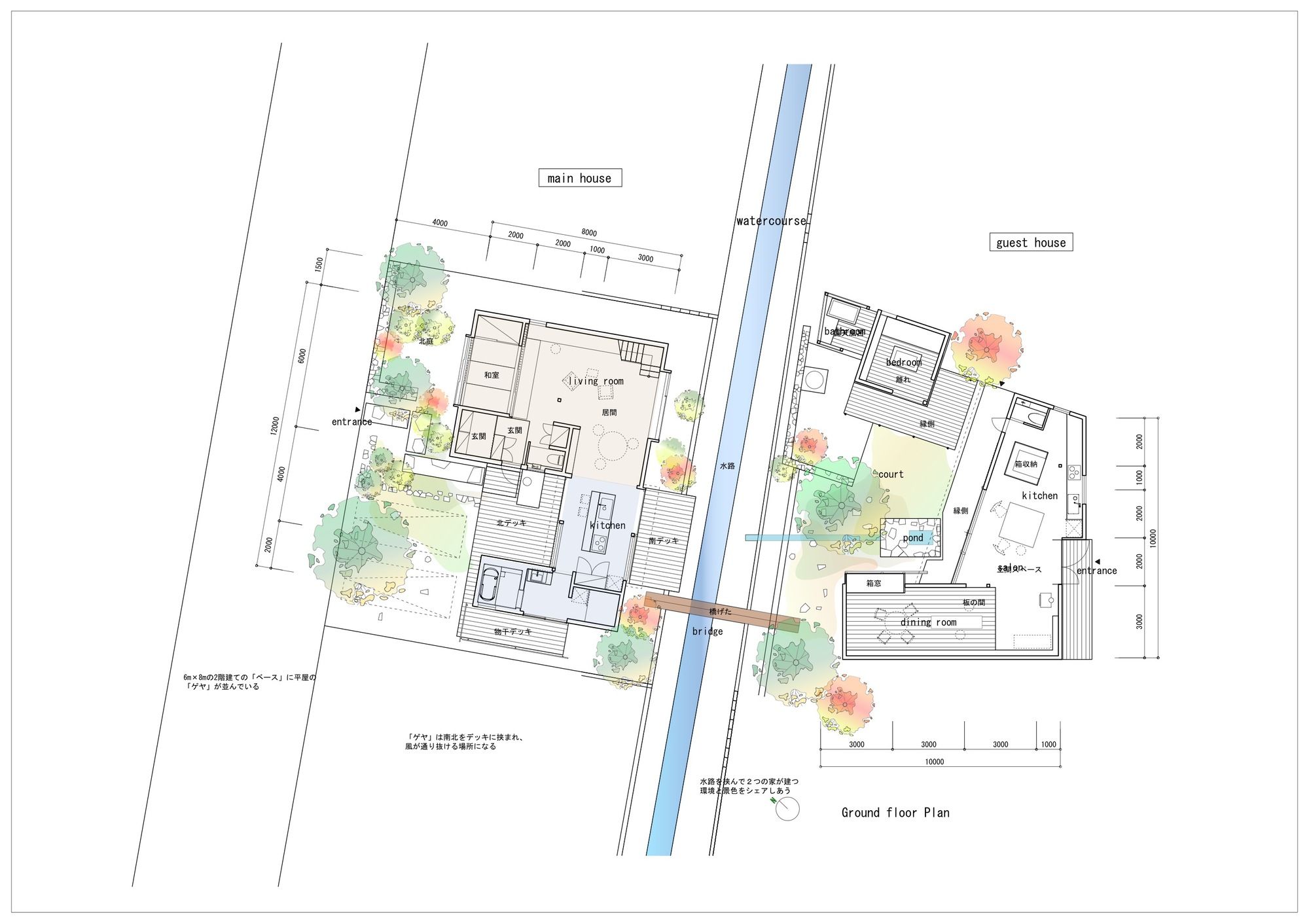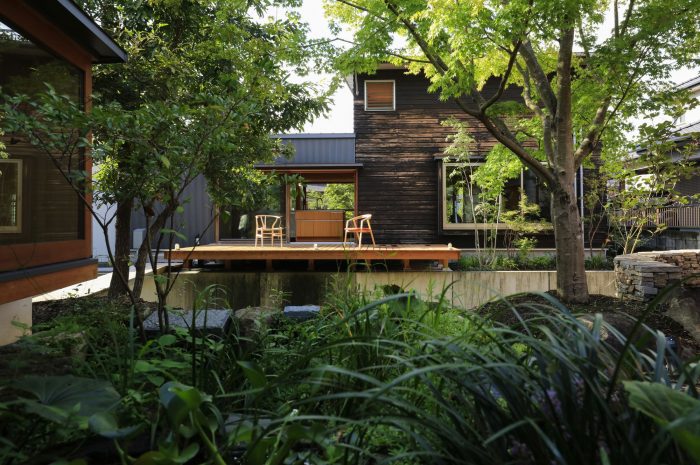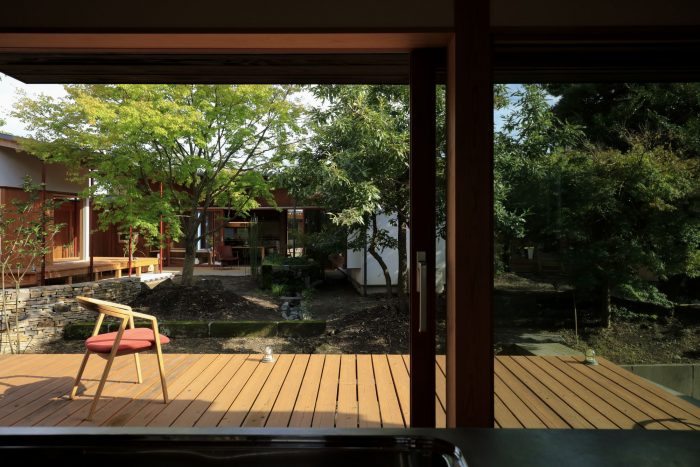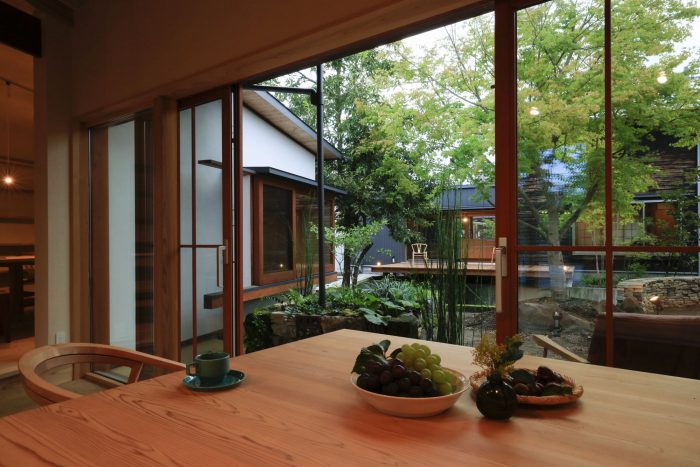Designed by Plan 21, this house is a pair of architectures where the main house and the guest house face each other across the watercourse. The main house was first built, and five years later the guest house was expanded. The place is located in the city of Aira, south of Japan, Kagoshima prefecture.
Originally Japanese houses were open and liberate. However, in recent years, housing in Japan has changed greatly and is becoming closed. In response to that situation, this house was designed to regain its original liberating housing shape. On extending the guest house, the architect reused the two spatial elements that the past Japanese houses had. They are the space under the eaves and the dirt floor.
The interior floor of the guest house is finished with a dirt floor. The dirt floor extends from indoors to the outdoors, and the outdoor part is covered with large eaves. Beyond the eaves beneath there is a courtyard with plants, and further, beyond that, there is a main house across the watercourse.
In recent years many Japanese houses have abandoned their spatial elements, shut off from the outside with aluminum sash and air conditioner. As a result, many Japanese houses lost contact with outside nature and became like autism. In this house, they connected the indoor and outdoor with the dirt floor, covered it with large eaves, and realized a living integrated with nature.
Project Info:
Architects: Plan21
Location: Aira, Japan
Area: 1,200 m2
Project Year: 2016
Photographs: Akira Ueda
Project Name: Guest House in Aira
